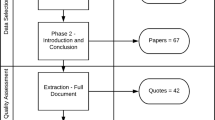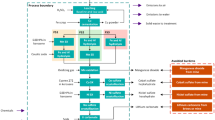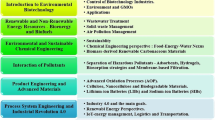Abstract
REWAS, a sustainability driven conference within The Minerals, Metals & Materials Society (TMS), has a long history of bringing together academia and industry to exchange and reflect on the latest technology developments in the process optimization and waste management fields. The first edition of REWAS (REcycling and WASte symposium) took place in 1999. The scope of the conference has since then broadened to include environmental sustainability, resource management and manufacturing efficiency, liaising these developments to the metallurgical industry in a broader societal and systemic context. The 2022 edition of REWAS which will be hosted at the TMS 2022 Annual Meeting & Exhibition in Anaheim, California, provides a resolute outlook towards Developing Tomorrow’s Technical Cycles. Within the metals and materials industry, technical cycles refer to the ensemble of strategies and processes applied to the development of sustainable product loops with the intent to eliminate waste and instead rethink, reuse and upcycle products. The success of technical cycles requires strengthening our circular approach for product life cycle design by providing guidelines and implementation examples to the developers, designers, policy makers and business managers. REWAS promotes such strategies within a priority sector identified for Circular Economy enablement: raw materials supply and management. REWAS 2022 consists of six symposia, and abstract submissions are expected in summer 2021. Topics include recycling and sustainability within the aluminum industry, specifically on casting technologies, recovery of metals from complex products and systems, decarbonization of the metallurgical and manufacturing industry, sustainable production and development perspectives, as well as automatization and digitalization for advanced manufacturing. REWAS 2022 will also include an honorary symposium for Dr. Diran Apelian, whose contributions in metals processing, aluminum and battery recycling, sustainability, education in materials science and more have shaped the path for sustainable materials processing.
Similar content being viewed by others
References
BeazleyTM(1999) REWAS’99 serves as a “model” for TMS international initiatives. JOM 51:21
Reuter MA, Meskers CEM, Kirchain R, Lados DA (2010) Sustainable materials processing and production–TMS 2010 materials and society symposium. JOM 62:20
Anderson IE (2010) TMS materials and society committee: working toward a sustainable future. JOM 62:11
Kirchain R, Meskers C, Reuter M, Lados D (2009) TMS 2010 materials and society symposium: making a “Sustainable” world. JOM 61:17
Kirchain R, Meskers C (2010) Sustainability panel discussion: voices of industry, academia, and national labs. JOM 62:25
Kvithyld A, Meskers C (2013) Different perspectives in enabling materials resource sustainability. JOM 65:982–983
Kirchain RE et al (2016) REWAS 2016: towards materials resource sustainability. Springer, Cham. https://doi.org/10.1007/978-3-319-48768-7
Gaustad G et al (2019) REWAS 2019: manufacturing the circular materials economy. Springer, Cham
Kvithyld A et al (2013) REWAS 2013: enabling materials resource sustainability. Wiley, Hoboken
Available at www.tms.org/TMS2022.
Tryggvason G, Apelian D (2012) Shaping our world: engineering education for the 21st century. Wiley, Hoboken
Wang L, Makhlouf M, Apelian D (1995) Aluminium die casting alloys: alloy composition, microstructure, and properties-performance relationships. Int Mater Rev 40:221–238
Shankar S, Apelian D (2002) Die soldering: mechanism of the interface reaction between molten aluminum alloy and tool steel. Metall Mater Trans B 33:465–476
Shivkumar S, Keller C, Trazzera M, Apelian D (1990) Precipitation hardening in A356 alloys. In: Production, refining, fabrication and recycling of light metals. Elsevier, Amsterdam, pp 264–278
Zou H, Gratz E, Apelian D, Wang Y (2013) A novel method to recycle mixed cathode materials for lithium ion batteries. Green Chem 15:1183–1191
Kelly S, Apelian D (2018) Automotive aluminum recycling at end of life: a grave-to-gate analysis. Cent Resour Recover Recycl Met Process Inst Worcester Polytech Inst 100
Binnemans K, Pontikes Y, Jones PT, Van Gerven T, Blanpain B (2013) Recovery of rare earths from industrial waste residues: a concise review. In: Proceedings of the 3rd international slag valorisation symposium: the transition to sustainable materials management, pp 191–205
Kopper A, Karkare R, Paffenroth RC, Apelian D (2020) Model selection and evaluation for machine learning: deep learning in materials processing. Integr Mater Manuf Innov 9:287–300
Paris agreement (2015) In: Report of the conference of the parties to the United Nations framework convention on climate change (21st session, 2015: Paris), vol 4. HeinOnline
Hockstad, L., and Hanel, L. (2018) Inventory of U.S. Greenhouse Gas Emissions and Sinks. United States: N. p. Web. https://doi.org/10.15485/1464240.
Legemza J, Fröhlichová M, Findorák R (2019) Biomass and carbon fuels in metallurgy. CRC Press, Boca Raton
Chen X, Despeisse M, Johansson B (2020) Environmental sustainability of digitalization in manufacturing: a review. Sustainability 12:10298
Mori L, Saleh T, Sellschop R, Van Hoey M (2018) Unlocking the digital opportunity in metals. McKinsey Co., New York
Reuter MA, van Schaik A, Ballester M (2018) Limits of the circular economy: fairphone modular design pushing the limits. World Met 71:68–79
Thacker S et al (2019) Infrastructure for sustainable development. Nat Sustain 2:324–331
Abadias Llamas A, Bartie NJ, Meskers CEM, Reuter M (2020). SOCRATES Policy Brief. Available at: https://etn-socrates.eu/new-etn-socrates-policy-brief-on-european-green-deal/
Bartie NJ, Abadías Llamas A, Heibeck M, Fröhling M, Volkova O, Reuter MA (2020) The simulation-based analysis of the resource efficiency of the circular economy—the enabling role of metallurgical infrastructure. Miner Process Extr Metall 129(2):229–249
Pucker KP (2021) Overselling sustainability reporting. Harvard Business Review. 99(3):134-143.
Norgren A, Carpenter A, Heath G (2020) Design for recycling principles applicable to selected clean energy technologies: crystalline-silicon photovoltaic modules, electric vehicle batteries, and wind turbine blades. J Sustain Metall 6:761–774
Chowdhury MS et al (2020) An overview of solar photovoltaic panels’ end-of-life material recycling. Energy Strateg Rev 27:100431
Forti V, Balde C.P, Kuehr R, Bel G. The Global E-waste Monitor (2020) Quantities, flows and the circular economy potential. United Nations University (UNU)/United Nations Institute for Training and Research (UNITAR) – co-hosted SCYCLE Programme, International Telecommunication Union (ITU) and International Solid Waste Association (ISWA), Bonn/Geneva/Rotterdam
Abdelbasir SM, El-Sheltawy CT, Abdo DM (2018) Green processes for electronic waste recycling: a review. J Sustain Metall 4:295–311
United States Environmental Protection Agency. https://www.epa.gov/facts-and-figures-about-materials-waste-and-recycling/aluminum-material-specific-data.
European Aluminum Association Available at: https://european-aluminium.eu/media/1712/ea_recycling-brochure-2016.pdf
Primary aluminium smelting energy intensity (2019) International Aluminium Institute. http://www.world-aluminium.org/statistics/primary-aluminium-smelting-energy-intensity/
Author information
Authors and Affiliations
Corresponding author
Ethics declarations
Conflict of interest
On behalf of all authors, the corresponding author states that there is no conflict of interest.
Additional information
The contributing editor for this article was Bart Blanpain.
Publisher's Note
Springer Nature remains neutral with regard to jurisdictional claims in published maps and institutional affiliations.
Rights and permissions
About this article
Cite this article
Fleuriault, C., Gokelma, M., Anderson, A. et al. REWAS 2022: Developing Tomorrow’s Technical Cycles. J. Sustain. Metall. 7, 406–411 (2021). https://doi.org/10.1007/s40831-021-00378-8
Received:
Accepted:
Published:
Issue Date:
DOI: https://doi.org/10.1007/s40831-021-00378-8




